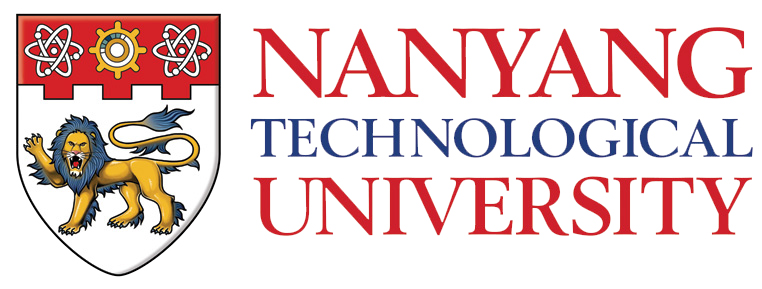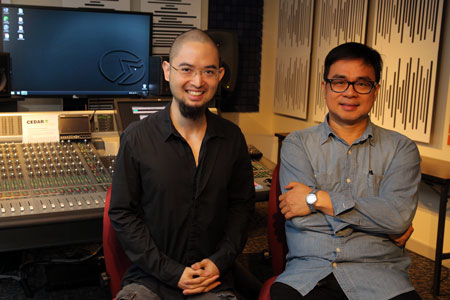Nanyang Technological University graduates to CEDAR Cambridge

3 September 2015
SINGAPORE: A CEDAR Cambridge system now lies at the heart of Nanyang Technological University's (NTU) Centre for IT Services, Event and Media Support Section.
"The Event and Media Support Section services all of NTU's faculties and departments including the National Institute of Education", explains the Section's Senior Assistant Director, Eric Wei. "We provide services related to video and audio pre- and postproduction, graphic design, motion graphics, 3D animation, photography and print. We also manage, deploy and do the programming for ChannelNTU, which is NTU's campus-wide digital signage system."
But, just as the Section undertakes many of the tasks of a commercial media outlet, so the challenges it faces remain similar. "Quite often we encounter issues with the audio channels of our video recordings", says Mr Wei. "We get interference noises and only discover them after the shoot is over. We needed a system that could reduce or even remove them."
Mr Wei and his colleagues had long sought a solution, but previous efforts with software plug-ins failed to live up to expectations. Instead, they have now graduated to a CEDAR Cambridge audio restoration system, supplied and installed by CDA Pro Audio (Asia), which represents CEDAR in Singapore and Malaysia.
"CEDAR's association with NTU runs much longer and deeper than people might imagine", explains CEDAR Audio's managing director Gordon Reid, who visited NTU earlier this year. "One of our directors, Professor Peter Rayner, was a visiting professor in the Department of Electrical Engineering at NTU on no less than five occasions in the 1980s and 1990s and, together with one of CEDAR's former employees, also collaborated with them on research into image restoration."
He continues, "When I visited NTU in June 2015 to perform the training for Eric and his staff, I discovered that we had met in the 1990s when I demonstrated the original CEDAR for Windows system to him. This went a long way to explaining his in-depth understanding of the CEDAR Cambridge system and the issues surrounding audio restoration and noise reduction."
"I was very impressed all these years ago when I heard the demo", Mr Wei recalls. "When we had the opportunity and financial resources to purchase the CEDAR Cambridge system, it was an easy ‘no brainer' decision". He added that the "integration was quite straightforward, what is more important is the ability to use the system properly. As the saying goes, 'a moment to learn, a lifetime to master'. It really helped when Gordon did the training with us."

Mr Reid picks up the story. "At any given time, I trained up to five of Eric's colleagues. I was delighted with their existing knowledge of the system which was due, in large part, to support from CDA Pro Audio Asia's general manager Joel Chia and managing director Rick Dowel, who had already conducted sessions on specific modules such as Declickle, Declip, and Auto dehiss, as well as running through the overall picture of what CEDAR Cambridge can do. Rick had emphasised that there is no magic wand in audio restoration, which made my job much easier!"
The university was also well prepared in terms of accompanying equipment. "NTU had installed a pair of ATC monitors, which meant that they could hear the initial problems clearly and gauge the noise reduction necessary for best results", says Mr Reid. "This isn't a trivial matter - elsewhere in the past, I have been asked to train people who are trying to listen through tiny, plastic computer speakers, which imposes some interesting challenges."
"I generally find that our customers understand the various filters in a restoration system, and learn how to use them quickly and easily. So, when training, I spend much of my time discussing the architecture of the system and showing how the various types of processes can be combined to achieve results that can't be obtained from a more limited ‘plug-in' type of architecture. NTU's studios experience the same time pressures as commercial studios so we concentrated on achieving the best results in the quickest possible time."
With the training complete, Mr Wei now observes that the "most obvious difference is the quality of the audio after the unwanted noises have been removed. The original, high-quality audio signal is still intact. I don't think I have come across any system that can beat what CEDAR can do in terms of noise removal." He concludes that the technology has benefitted NTU "greatly! In the future when any of our video recordings have unwanted noise, we are more than well-equipped to handle the situation".
For further information:
CEDAR Audio Ltd, 20 Home End, Fulbourn, Cambridge, CB21 5BS, UK
t: +44 1223 881771 · e: info@cedaraudio.com · w: www.cedaraudio.com
CDA Professional Audio, Luzerne Building, 70 Bendemeer Road #01-01A, Singapore 339940
t: +65 6254 9983 · e: info@cda-proaudio.com · w: www.cda-proaudio.com
Pro Audio Asia
Proaudio-central







